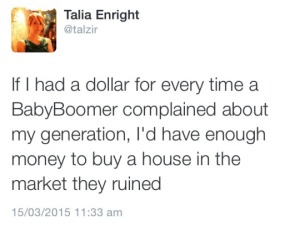It’s pretty common knowledge that China does not mix well with the Internet at large, especially prevalent in regards to the standing bans on Facebook and pretty much anything made by Google. These difficulties are expected, though you’d be surprised how many ex-pats I’ve heard try to explain to the people back home that, “No, you cannot just send to me via Google docs.” What most people don’t know s that there are a whole variety of other issues pertaining to the realm of Chinese applications like WeChat, which really shouldn’t be surprising but at this point continues to catch my unawares. It was one of these times recently when my friends began to worry about me, as I was not responding to their messages. Turns out I wasn’t being antisocial on purpose; WeChat had randomly stopped its notification process.
While bemoaning the all-too-frequent struggle inherent in Chinese social media, said ex-pat friend brought up a good point: He had begun to wonder if I had slipped in the bath and was thus incapacitated, just waiting to be found (A situation which I’m sure will haunt my mother’s nightmares after she reads this. Sorry Mom.) Being the peppy, optimistic rays of sunshine that we are, he and I began everyone’s favorite discussion, “How long do you think it would take someone to find you should the worst happen?”
Morbid as this conversation is, I personally believe it’s a question everyone who lives alone should consider occasionally. I don’t mean to give anyone a complex about living alone, but it’s worth knowing how often someone checks on you and whether they would notice if you dropped off the face of the Earth. The safety benefits of this knowledge are pretty obvious, but there are a host of other concerns as well. For one, if you live alone with pets, you should probably be aware of how quickly they will quite literally turn on you.
This scenario is possibly even more important for those of us who live abroad, just due to the isolation factor. Your average person has a day job and likely a close group of friends and/or family that would probably notice a disappearance within 24 hours. For ex-pats, however, it all depends on your work situation and how social you are. My own university, for example, gives me enough of a free rein that I’m not sure how quickly they’d notice I wasn’t turning up to teach classes. I couldn’t even guess how long it would take them to check my apartment.
Before I send my mother into a panic attack, I should mention I have friends here who would probably notice. Apparently the friend I mentioned earlier was showing concern in less than two days, which is pretty good considering I didn’t even know I was ignoring him. Furthermore I live in the same building as four of the other foreign teachers, and I’m pretty confident they would notice my absence.
Isolation is a near-constant when living abroad, but I really do think it’s important for everyone to consider. If you’re like me, you’ve lived alone only a fraction of your life, and the isolation can be worrisome. Don’t get me wrong, it feels pretty good to have your own space, and to not have to share bathrooms or refrigerators. I absolutely do not want to have to live with room mates or with my parents. But in taking a moment to think about how long it would take for someone to break down my apartment door, I realized just how alone I am out here.

